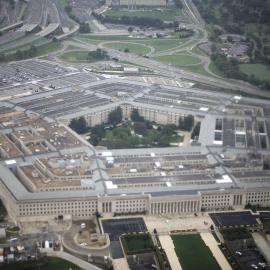Martin Feldstein replies:
Major Lawrence Spinetta and I have fewer substantive disagreements than he may think. In my article, I recognized and dealt with the issues he raises.
My basic point, of course, is that the United States faces a much greater threat than it did right after the collapse of the Soviet Union. It still needs to deter potential future aggression from major nations, such as China and Russia. But it now recognizes the danger of smaller regional powers, such as Iran, North Korea, and Pakistan, as well as the risks of organized global terrorism. Despite these increased risks, the United States' current basic defense budget is only the same three percent of GDP that it was immediately after the end of the Cold War.
I agree that the more mobile and sophisticated army envisioned in the Future Combat Systems program would not solve all of Washington's problems. But it would be very useful if the United States needs to operate in multiple regional theaters. And the situation today in Iraq would almost certainly be significantly better if the much larger number of troops that the army originally requested were deployed there. Deaths and casualties would be lower if the troops had more heavily armored vehicles and other force-protection equipment. All of this costs money.
The United States' apparent inability to fight more than one regional conflict means that the country is no longer as effective at deterring regional powers' aggressive behavior. Its reduced naval forces make it more difficult to intercept terrorist activities and to protect the waterways that are vital to international trade and the supply of oil.
The United States may well need new strategies, as Spinetta argues, but that is not a substitute for the additional fighting capabilities I have described. A higher level of spending on conventional forces would not stop terrorism at home, but it would deter other nations -- both large and small -- from thinking about military strategies that could challenge U.S. interests and allies. I have no disagreement with Spinetta's call for more spending on intelligence and foreign aid, and I specifically called for that in my piece.
At a time when the United States' GNP grows at three percent a year, it is sad that we seem unwilling to devote a larger share of that growth to increasing our national security.
You are reading a free article.
Subscribe to Foreign Affairs to get unlimited access.
- Paywall-free reading of new articles and a century of archives
- Unlock access to iOS/Android apps to save editions for offline reading
- Six issues a year in print, online, and audio editions
